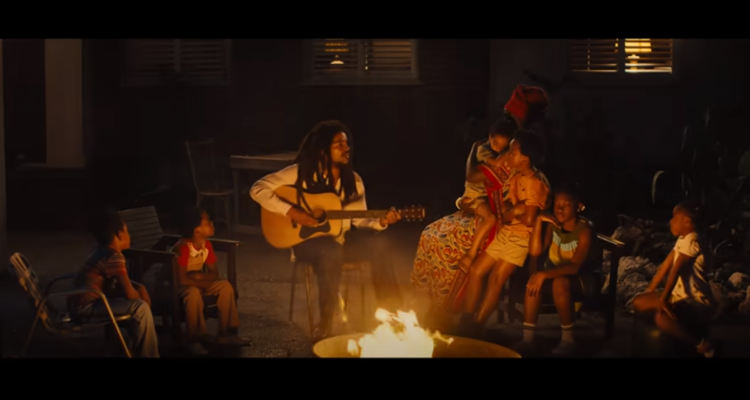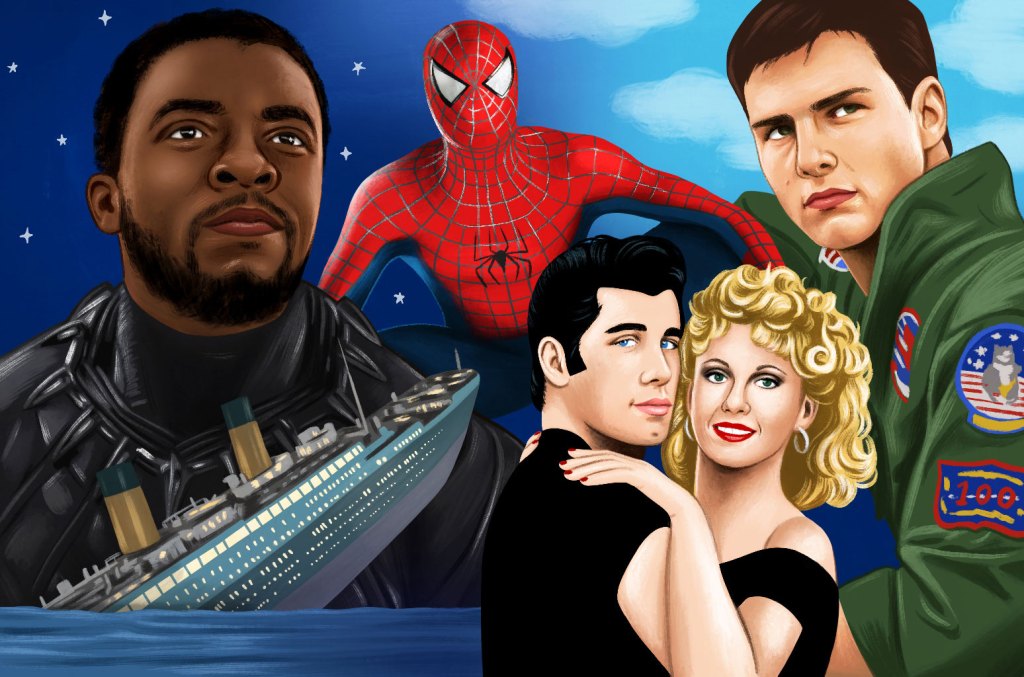‘Bob Marley: One Love’ Hits $44 Million in Box Office Receipts


Photo Credit: Paramount Pictures
‘Bob Marley: One Love,’ Paramount’s biopic about the reggae legend, hits $44 million in box office receipts over the Valentine’s Day weekend.
Paramount’s biopic, “Bob Marley: One Love,” about the reggae legend and directed by Reinaldo Marcus Green, stayed high over the Valentine’s Day weekend, raking in $44 million at the box office in the six days since its release. The movie brought in $27.7 million in three days alone — higher than Paramount’s Elton John biopic “Rocketman,” which premiered during the pre-pandemic summer of 2019.
In fact, the Marley film falls just shy of beating Warner Bros.’ Baz Luhrmann-directed “Elvis” in 2022, with a three-day opening weekend of $31.2 million. Comparatively speaking, 20th Century Fox’s 2018 Freddie Mercury biopic, the multi-Oscar winning “Bohemian Rhapsody,” posted a three-day opening of $51 million.
“Bob Marley: One Love” saw a beautiful Valentine’s Day launch, thanks in no small part to its post-production crew, who ensured the film was ready after the actors’ strike prevented the film from hitting its initially planned release date on Martin Luther King Jr. Day.
“The date became the kindling to star the fire over the long holiday weekend,” says Paramount Domestic Distribution Chief Chris Aronson. “The movie’s title of ‘One Love’ represented the message of love, hope, and peace, and unity that is Bob’s music, which is emblematic of Valentine’s Day.”
“My family and I are honored with the amazing response to ‘Bob Marley: One Love.’ Like my father’s music, this movie is meant for the people, and his message of peace, love, and unity is clearly connecting with audiences around the world,” says Ziggy Marley, who produced the film. “We thank the people for embracing this film, and in so doing, helping to highlight the message of one love.”
Data from box office firm EntTelligence reports that the film saw 3.8 million patrons, compared to the 1.8 million brought in by the film “Madame Web,” which debuted concurrently. The most dominant demographic for the movie is the 35-44 bracket with 22%, but it’s showing large cross-generational appeal, with 21% in the 18-24 range, 17% in the 25-34 range, 16% at 45-54, and 14% at 55 or over.
Link to the source article – https://www.digitalmusicnews.com/2024/02/18/bob-marley-one-love-hits-44-million-in-box-office-receipts/
Recommended for you
-
AXE HEAVEN PL-408 Phil Lesh Alembic Miniature Bass
$39,99 Buy From Amazon -
Eastar Soprano Recorder Instrument for Kids Adults Beginners, Baroque fingering C Key Maple Wooden Recorder, 3 Piece Recorder With Hard Case, Fingering Chart, Cleaning Kit, ERS-31BM
$28,99 Buy From Amazon -
Axe Heaven MA-030 Licensed Michael Anthony JD Bass Miniature
$50,37 Buy From Amazon -
Arturia KeyLab Essential mk3 â 61 Key USB MIDI Keyboard Controller with Analog Lab V Software Included
$279,00 Buy From Amazon -
The Loar LM-520-VS Performer F-Style Mandolin
$599,00 Buy From Amazon -
Behringer ABACUS Analog Music Computer Module for Eurorack
$121,90 Buy From Amazon -
48 Pieces Drum Dampeners Gel Pads Silicone Drum Silencers Soft Drum Dampener Drum Mute Pads Dampening Gel Pad for Drums Tone Control (Black)
$9,99 Buy From Amazon













Responses